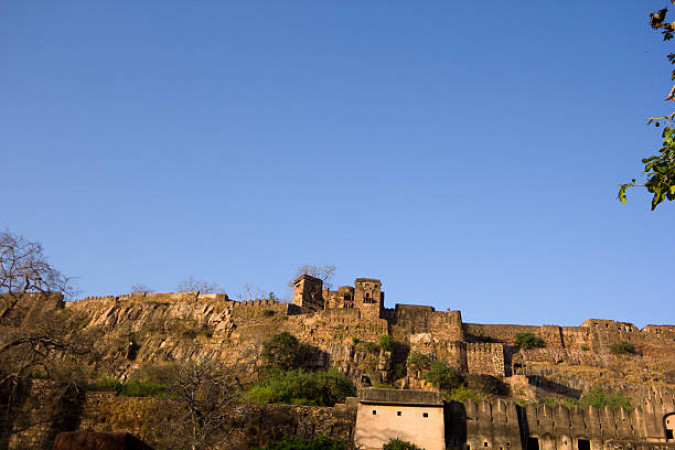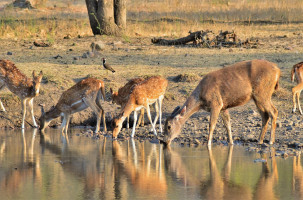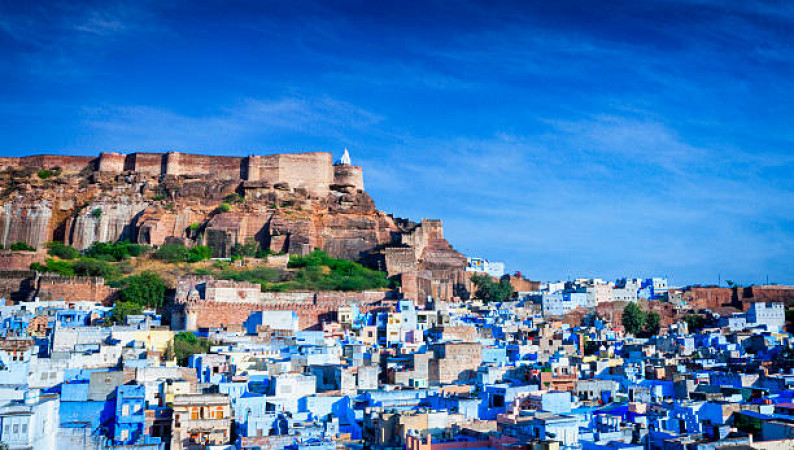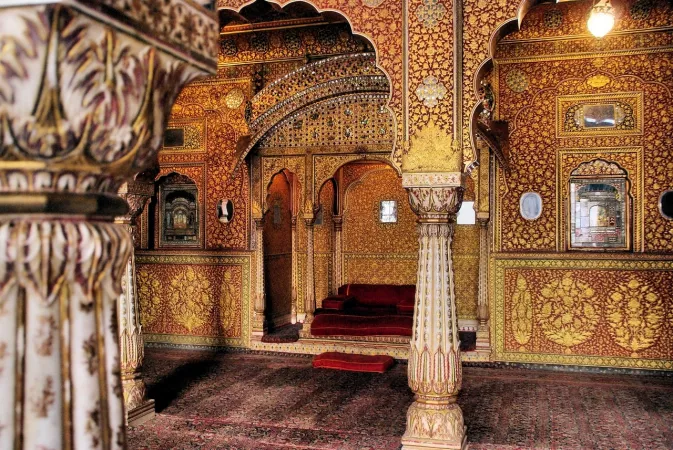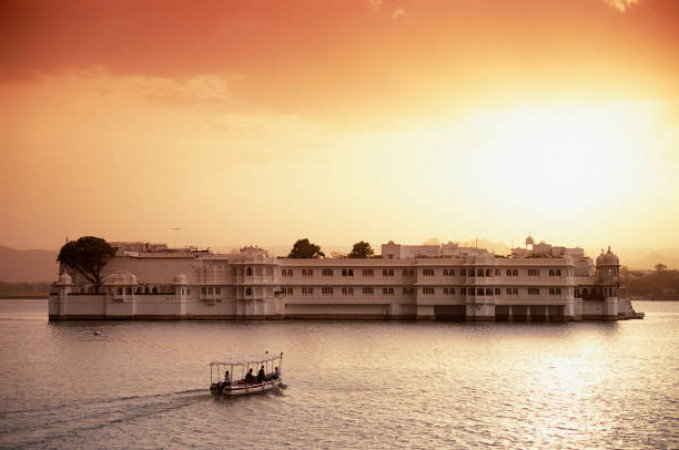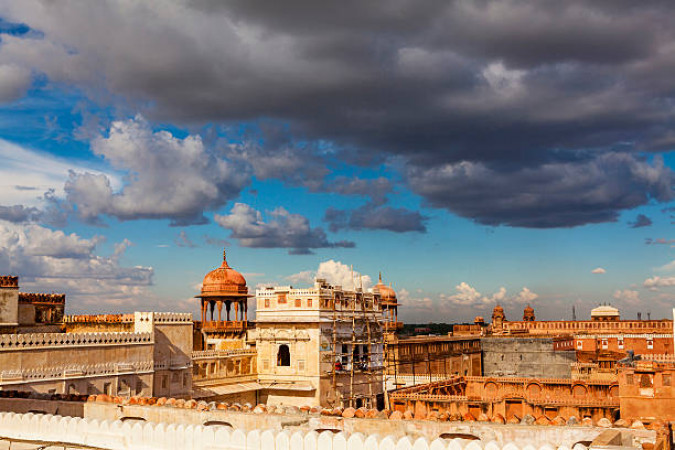Ranthambore Travel Guide
Ranthambore, located in the state of Rajasthan, India, is a destination famous for its rich history, diverse geography, and vibrant culture. The region is renowned for being home to Ranthambore National Park, one of the largest national parks in India and a popular destination for wildlife enthusiasts. The park is known for its population of Bengal tigers, making it a prime spot for tiger sightings. Additionally, Ranthambore is steeped in history, with the majestic Ranthambore Fort standing as a testament to the region's royal past.Top Attractions in Ranthambore
- Ranthambore National Park
- Ranthambore Fort
- Padam Talao
- Trinetra Ganesh Temple
Ranthambore is Famous for
Wildlife enthusiasts flock to Ranthambore for its renowned tiger population.Top Attractions in Ranthambore
- Embark on thrilling jungle safaris
- Explore the ancient ruins of Ranthambore Fort
- Visit the picturesque Padam Talao lake
- Seek blessings at Trinetra Ganesh Temple
What's Great about Travelling to Ranthambore?
- Opportunity to witness majestic Bengal tigers in their natural habitat
- Rich historical and cultural experiences
- Thrilling wildlife safaris
What's Not So Great about Travelling Ranthambore?
- Hot temperatures during summer months
- Crowds during peak tourist seasons
- Limited dining and accommodation options
Travel Tips for Ranthambore
- Obtain necessary permits for wildlife safaris in advance
- Respect the local wildlife and follow park regulations
- Carry sufficient water and sunscreen during outdoor excursions
Important Ranthambore trip information
- Ideal Duration: 3-4 days
- Best Time to Visit: October to March
- Nearby Airports and Railway Stations: The nearest airport is Jaipur International Airport, and Sawai Madhopur is the nearest railway station.
Top 4 Places to visit in Ranthambore
Total
11,000
*EXCLUDING APPLICABLE TAXES 5.0 Ratings
( 23 Reviews )
( 23 Reviews )
Per Person
16,000
*EXCLUDING APPLICABLE TAXES 5.0 Ratings
( 107 Reviews )
( 107 Reviews )
Per Person
9,500
*EXCLUDING APPLICABLE TAXES 3.9 Ratings
( 74 Reviews )
( 74 Reviews )
Per Person
16,800
*EXCLUDING APPLICABLE TAXES 5.0 Ratings
( 107 Reviews )
( 107 Reviews )
“Wild & Royal Rajasthan” – Where the roar of the jungle meets the pride of the Rajputs. (Group Tour)
Jaipur, Ranthambore
3 Nights / 4 Days
Per Person
11,500
*EXCLUDING APPLICABLE TAXES Per Person
39,000
*EXCLUDING APPLICABLE TAXES 5.0 Ratings
( 215 Reviews )
( 215 Reviews )
FAQ's on Ranthambore
Q1: What is the best time to visit Ranthambore?
Ranthambore is best visited from October to March when the weather is pleasant for wildlife sightings and exploring the national park. This period also coincides with the peak tourist season and the chance to spot tigers is higher. Avoid the monsoon season from July to September as the park remains closed. April to June is also a good time for tiger sightings as the vegetation is sparse, but the weather can be extremely hot.
Q2: Do I need a visa to travel to Ranthambore?
Most visitors to Ranthambore will require a tourist visa to enter India, of which Ranthambore is a part. Check with the Indian embassy or consulate in your country for specific visa requirements. Some nationalities may be eligible for e-visas or visa-on-arrival, but it is essential to confirm this before traveling.
Q3: What are the must-visit attractions in Ranthambore?
The top attractions in Ranthambore include the Ranthambore National Park, known for its thriving tiger population and diverse wildlife. The Ranthambore Fort, a UNESCO World Heritage Site, offers stunning views of the park and surrounding area. Padam Talao, the largest lake in the park, is a popular spot for birdwatching and wildlife sightings. Trinetra Ganesh Temple and Surwal Lake are also worth visiting for their cultural and natural significance.
Q4: Is Ranthambore a safe place to travel?
Ranthambore is generally safe for tourists, especially within the confines of the national park and established accommodations. However, it is advisable to follow safety guidelines provided by park authorities, avoid venturing into restricted areas, and be cautious of wildlife encounters. It is recommended to travel with a guide or in organized tours for a safer experience.
Q5: What is the local currency in Ranthambore and can I use credit cards?
The local currency in Ranthambore, as in the rest of India, is the Indian Rupee (INR). While major establishments may accept credit cards, it is advisable to carry cash for smaller purchases and in remote areas. ATMs are available in nearby towns like Sawai Madhopur for convenient access to cash.
Q6: What is the local cuisine like in Ranthambore?
Ranthambore offers a blend of Rajasthani and North Indian cuisine, featuring dishes like dal baati churma, gatte ki sabzi, and ker sangri. Visitors can savor traditional thalis and local sweets like ghevar and imarti. Be sure to try the spicy Laal Maas (red meat curry) and refreshing lassi. Vegetarian options are widely available, and dietary preferences can usually be accommodated by informing the restaurants in advance.
Q7: What transportation options are available in Ranthambore?
Transportation options in Ranthambore include hiring local taxis, auto-rickshaws, or private cars for exploring the area. The national park offers safaris with designated vehicles for wildlife viewing. Public buses and trains connect Ranthambore to major cities like Jaipur and Delhi. Car rentals are also available for self-driving convenience, but it is recommended to hire experienced drivers familiar with the local terrain.
Q8: Are there any cultural norms or etiquette I should be aware of when visiting Ranthambore?
When visiting Ranthambore, it is important to respect local customs and traditions. Dress modestly, especially when visiting religious sites or interacting with local communities. Always seek permission before taking photographs of people or religious places. Remove shoes before entering temples or homes. Greet locals with a respectful "Namaste" and be mindful of cultural sensitivities. Avoid public displays of affection and be aware of designated conservation rules within the national park to ensure a responsible and enjoyable visit.
Q9: I am a travel agent. How can I buy travel leads of Ranthambore?
Register yourself as a travel agent at agents.tripclap.com and then you can buy travel leads to Ranthambore once your account is approved. For more details contact our support team at +91-8069186564 or support@tripclap.com
